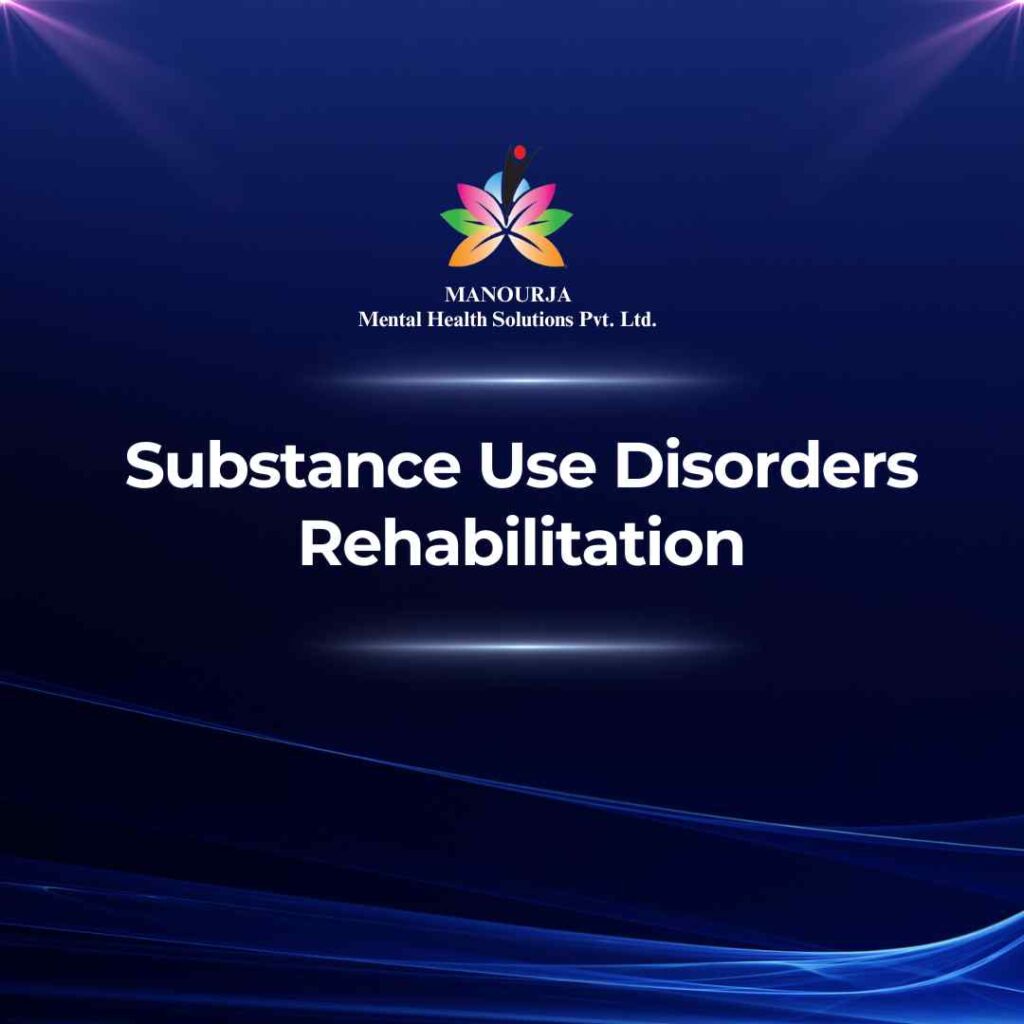Substance Use Disorders Rehabilitation

Substance Use Disorders (SUDs) involve the recurrent use of alcohol and/or drugs causing clinically and functionally significant impairment, such as health problems, disability, and failure to meet major responsibilities at work, school, or home. Understanding the signs, symptoms, and appropriate treatment options is crucial for recovery.
Signs and Symptoms of Substance Use Disorders
- Increased Tolerance: Needing more of that substance to achieve the same effect.
- Withdrawal Symptoms: Experiencing physical or psychological symptoms when reducing or discontinuing use, such as nausea, sweating, shakiness, and extreme anxiety.
- Loss of Control: Involves using larger amounts or over a longer period than was intended.
- Desire to Cut Down: Persistent desire or unsuccessful efforts to cut down or control substance use.
- Time Consumed: A great deal of time is spent in activities necessary to obtain the substance, use the substance, or recover from its effects.
- Neglect of Major Roles: Failure to fulfill major role obligations at work, school, or home.
- Continued Use Despite Problems: Continued substance use despite having persistent or recurrent social or interpersonal problems caused or exacerbated by the effects of the substance.
Indicators for Outpatient Psychosocial Rehabilitation (OPD)
- Mild to Moderate Severity: Individuals who do not show severe withdrawal symptoms and are still somewhat functional in their daily life may be suitable for outpatient treatment.
- Strong Support System: Availability of a supportive environment at home that can encourage adherence to treatment plans.
- High Motivation: Willingness to engage in the treatment process without the need for constant supervision.
Indicators for Inpatient Psychosocial Rehabilitation (IPD)
- Severe Addiction: Individuals with severe dependency who experience significant withdrawal symptoms and require medical detoxification.
- Co-occurring Disorders: Presence of concurrent mental health disorders that complicate treatment and require an integrated approach.
- Poor Support Environment: Lack of a supportive home environment or presence of multiple relapse triggers.
Factors Influencing the Decision
- Severity of the Disorder: The intensity of the addiction and associated health complications.
- Presence of Dual Diagnosis: Additional psychiatric conditions necessitate more intensive, specialized care.
- Previous Treatment History: Prior unsuccessful attempts at outpatient treatment may suggest the need for a more structured environment.
How Psychosocial Rehabilitation Aids in Treating Substance Use Disorders
Psychosocial rehabilitation focuses on restoring the individual’s functioning and well-being through various therapeutic interventions aimed at reducing substance dependency, enhancing coping mechanisms, and facilitating social reintegration.
Techniques and Approaches Utilized at MANOURJA
- Cognitive Behavioral Therapy (CBT): Helps identify and correct problematic behaviors by applying a range of skills that can be used to stop drug abuse and to address a range of other problems that often co-occur with it.
- Motivational Interviewing (MI): Increases an individual’s motivation to change and make positive decisions and behaviors.
- Contingency Management: Uses positive reinforcement such as providing rewards or privileges for remaining drug-free, for attending and participating in counseling sessions, or for taking treatment medications as prescribed.
- Group Therapy: Provides peer support and helps to reduce feelings of isolation. It’s also used to impart skills to help manage life’s challenges without resorting to substances.
- Family Therapy: Engages family members in the recovery process, improving family dynamics and increasing support.
Steps Followed at MANOURJA for Rehabilitation
- Comprehensive Assessment: Evaluating the nature and extent of the addiction and any co-occurring mental or medical health conditions.
- Personalized Treatment Planning: Creating a tailored treatment plan based on the assessment findings.
- Implementation of Treatment: Engaging patients in various therapies according to their personalized treatment plans.
- Regular Monitoring and Adjustment: Continuously assessing the efficacy of the treatment and making necessary adjustments.
- Aftercare Planning: Developing a long-term strategy for post-treatment care to prevent relapse and ensure sustained recovery.
“Recovery is not a race; you don’t have to feel guilty if it takes you longer than you thought it would.”
